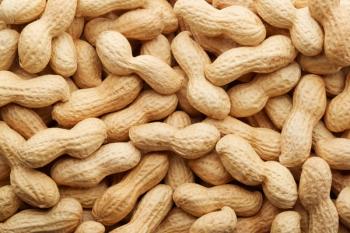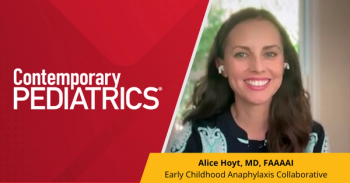
Early GI upset can be a red flag for later food allergies
Recent study suggests avoidance may not be the best medicine.
Immunoglobulin E (IgE)–mediated food allergies are on the rise across the United States, and can be fatal for some children. A recent report examines how early gastrointestinal reactions can raise red flags for future allergy development.
The
Food protein-induced allergic proctocolitis is common in early infancy, with about 17% of infants experiencing reactions to these proteins. This reaction is sometimes a precursor to other, more serious food allergies, specifically, IgE-mediated food allergies, says Qian Yuan, MD, PhD, FAAP, clinical director and principal research investigator at the MGH Food Allergy Center at Harvard Medical School in Boston, Massachusetts, and a co-author of the study.
“The association between FPIAP and IgE-mediated food allergies is very interesting,” says Yuan. “Food protein-induced allergic proctocolitis is considered a non-IgE mediated food allergy, but it occurs much earlier in life—between 2 weeks and 2 months of age—and it usually resolves by 12 months of age.”
Immunoglobulin E -mediated food allergies, on the other hand, usually appears around 6 months of age, he says.
“The increased risk of IgE-mediated food allergies in children with FPIAP raises the concern about our current recommendation in management of FPIAP that is diet restriction, most commonly dairy and soy,” Yuan adds.
Immunoglobulin E -mediated food allergies are not limited to these foods, and the process of these allergic reactions is much more complicated.
“We need to and should re-think our current management of FPIAP. Is diet restriction the best option?” Yuan asks. “The current recommendation of managing FPIAP with diet elimination is not evidence-based. In light of the LEAP study, the results of our current study calls for more in-depth clinical and basic research about non- and IgE-mediated food allergies.”
In this study, the research team looked at the opposite of avoidance—investigating whether early introduction of various proteins could help prevent FPIAP. The researchers found that infants who were initially fed both milk and formula were 61% less likely to develop FPIAP compared to those who were only formula fed. Breast milk and formula together during the first 4 months of infancy was associated with an overall lower risk of FPIAP development than when infants were fed breastmilk or formula alone.
Yuan suggests that now is the time to amend current recommendations for infants with FPIAP, reconsidering advice to avoid dairy and soy for the first year.
“Be aware of the potential development of IgE-mediated food allergies in children with FPIAP or other infants who present with bloody, mucousy stools, irritability, and other gastrointestinal symptoms,” Yuan says. “Be mindful when recommending the diet restriction to infants with FPIAP, either through formula changes, or as a diet restriction for mothers who are nursing.”
Yuan adds that FPIAP is often the first manifestation of the development of other food allergies, and should serve as a red flag to watch for other allergies later on.
Reference
1. Martin V, Virkud Y, Phadke N, et al. Increased IgE-mediated food allergy with food protein-induced allergic proctocolitis. 2020;146(3):e20200202. doi:10.1542/peds.2020-0202.
Newsletter
Access practical, evidence-based guidance to support better care for our youngest patients. Join our email list for the latest clinical updates.







